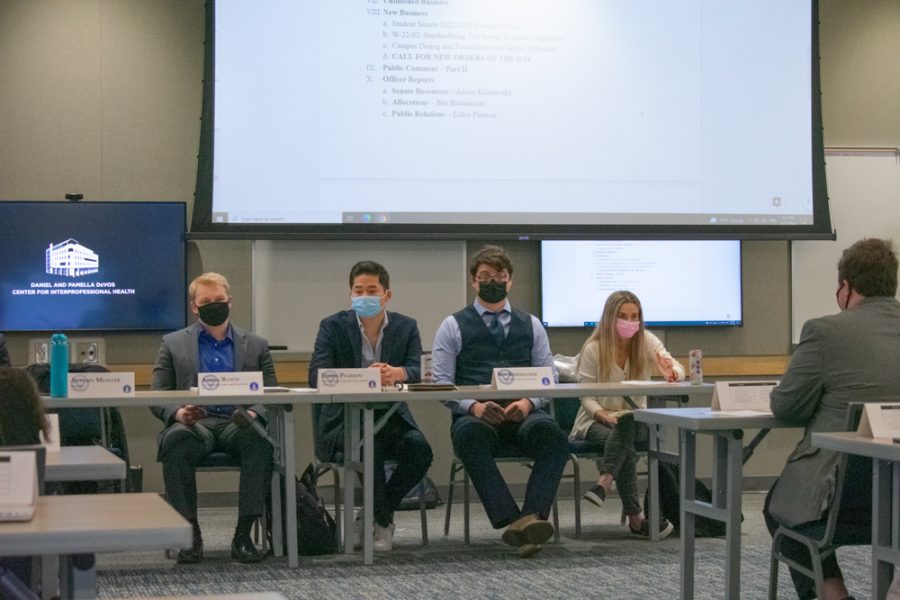GV Student Senate continues discussion on campus dining
Feb 21, 2022
Campus dining has been a topic on the mind of students and administrators for the past few semesters at Grand Valley State University.
With dining halls being closed due to a shortage of student workers and complaints concerning food quality and variety, many students have been calling on the GVSU administration and Aramark, the university’s third-party vendor for campus dining, to address the issues.
On Feb. 17 the Student Senate discussed this ongoing issue at their general assembly meeting.
The Student Senate discussed the campus dining issue extensively last November. However, they’d decided to continue doing research into the matter and begin working on a statement that would be sent out during the winter semester.
As a part of this further research and discussion, representatives from GVSU’s campus dining office attended the meeting to answer any questions raised.
Much of the conversation at the meeting concerned student workers and their relationships with Aramark and campus dining.
Paul Kramer, current director of campus dining at GVSU and former senior district manager for Aramark, said in a typical year campus dining would employ around 1,000 to 1,200 student workers.
They currently only employ about 375 students despite employment incentives in the forms of bonuses and increased wages during evening and weekend shifts.
Kramer said the campus dining student employee base pay is currently $9.87 and is based off of GVSU’s student pay scale rather than Aramark’s.
“All of our student employees are GVSU employees and they follow that pay scale, the pay scale across campus right now is equal,” Kramer said. “If there were a time that we could negotiate a different pay scale for dining, that would just have to be incorporated into pricing.”
However, Student Senate Vice President for External Relations, Justin Frappier, said this pay scale is just a guideline for student employee wages rather than a mandatory policy.
He said campus dining workers are potentially able to be paid higher wages than they currently are.
“VP Kidd and I are both paid at base level (for Student Senate positions) and are paid more than campus dining workers,” Frappier said. “There are different stages of payment through the university, so both of us are base level student workers but not campus dining workers so we’re getting paid more.”
Student senators also brought up points questioning the quality of the work environment for campus dining employees.
Senator Al Moutaa, a former campus dining worker, discussed the lack of flexibility he experienced when working. He said a student worker’s role as a student most importantly was not emphasized.
However, Kramer said that the campus dining office does their best to accommodate student workers with their practice of scheduling students around their class and extracurricular activity schedules.
Beyond student workers, the other point of focus at the meeting was student complaints about a lack of options within campus dining.
Some senators said many students with food restrictions such as vegans, vegetarians and those with food allergies or cultural/religious diets are often only offered repetitive meal options.
GVSU’s dietician, Allison Cooney, said she is currently working to incorporate new dietary restricted recipes into campus dining’s meals and encourages students to come and meet with her if they have any suggestions for more options.
Toward the end of the meeting, the Student Senate Cabinet read aloud their draft statement on the current campus dining conditions.
In its current form, the statement echoes many of the concerns voiced by students that want to see change in the way that campus dining operates.
In addition to calling for better working conditions and increased options, the statement also urges GVSU to improve the quality of food offered.
The statement also asks GVSU to reevaluate the contract between itself and Aramark, citing the previous issues listed as well as Aramark’s past controversies involving racism and workplace misconduct.
The senate cabinet said they will continue to revise this statement in light of the new information and debate presented at this general assembly meeting.
Sentiments from the cabinet indicate that the released statement will focus more on GVSU’s involvement in campus dining rather than Aramark’s.






















